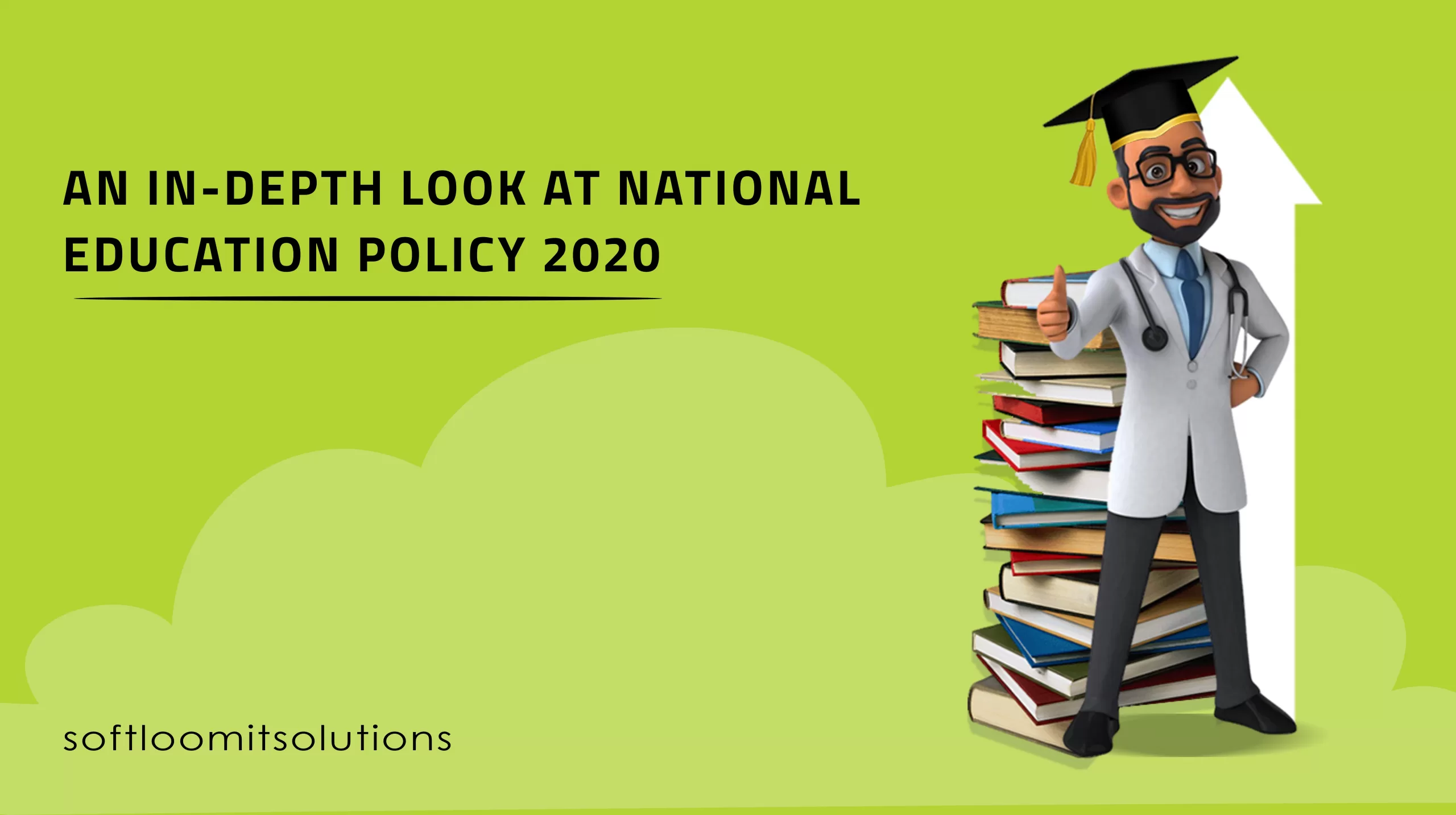The field of education has long been recognized as the cornerstone of societal development and the key driver of individual empowerment. To streamline this, nations across the world have implemented various educational policies. In India, one such critical milestone is the National Education Policy (NEP 2020), a comprehensive framework to guide the country’s education development.
What is the National Education Policy 2020?
The National Education Policy 2020, approved by the Union Cabinet on July 29, 2020, is a holistic and transformative framework to revolutionize the Indian educational system. The policy aims to create an inclusive, flexible, and learner-centric educational system that would cultivate critical thinking and creativity, preparing individuals for the 21st-century workforce.
National Education Policy of India – Background
The idea of a national policy on education in India was first mooted in 1968, followed by a more substantial revision in 1986, and updated in 1992. The NEP 2020 replaces the thirty-four-year-old National Policy on Education (NPE) 1986. It marks a paradigm shift in the approach towards education from the earlier policy.

Features of National Education Policy 2020
The NEP 2020 introduces significant changes to the existing system, aiming to increase the Gross Registration Ratio in upper education to 50% by 2035 and add 3.5 crore new seats to higher education institutions. It brings forth several revolutionary features:
- It introduces a 5+3+3+4 curricular and pedagogical structure corresponding to ages 3-8, 8-11, 11-14, and 14-18 years, replacing the current 10+2 system.
- NEP 2020 emphasizes mother tongue/regional language as the medium of instruction until Grade 5, but preferably till Grade 8 and beyond.
- It introduces a holistic 360-degree report card for students, offering a unique progress card that reflects not just the marks obtained in subjects but also the skills acquired, physical health, and character development.
Key Recommendations of National Education Policy 2020
Early Childhood Care & Education (ECCE)
The policy prioritizes early childhood education and aims to ensure universal access to quality earlier childhood education for all children between 3 to 6 years by 2025.
Right to Education Act, 2009
NEP 2020 proposes extension the Right to Education Act, 2009 to cover children aged 3 to 18 years, instead of the current 6 to 14 years, to ensure universal access to quality education.
Curriculum Framework
The policy mandates a new and comprehensive National Curricular Framework for School Education (NCFSE) 2020-21 and proposes to revise it every five years.
School Exam Reforms
The policy suggests a transformation in the assessment system by 2022 to align with competency-based education, moving away from rote learning. It proposes a National Assessment Centre as the standard-setting body for student assessments.
Regulatory Structure and Accreditation of Higher Educational Institutions
NEP 2020 calls for setting up a Higher Education Commission of India (HECI) as a single overarching body with four verticals handling different aspects of higher education.
National Mission on Education over Information & Communication Technology
The policy proposes leveraging technology to enhance learning outcomes. It promotes using AI, ML, Blockchain, and Smartboards to make education more interactive and practical.
Three Language Formula
The policy reaffirms the ‘three-language formula‘ but is flexible about the choice of the three languages.
National Education Policy 2020 Concerns
The implementation of NEP 2020 comes with challenges. Concerns have been raised over the feasibility of implementing the three-language formula and the increased emphasis on regional languages. The policy’s ambitious goals may also require considerable investment in infrastructure, training, and capacity building.
Merits of New Education Policy 2020
Despite the challenges, the NEP 2020’s merits are numerous. It promises to create an integrated, flexible, and holistic educational framework that emphasizes conceptual understanding rather than rote learning. It stresses multidisciplinary study and flexibility of subject choice, which are in tune with global academic standards.

Softloom’s Support for NEP 2020 Readiness
As the National Education Policy 2020 brings sweeping reforms to the Indian education sector. The institutions must upgrade their systems to ensure compliance and effectiveness. Softloom, with its innovative Academic Management System Software, provides an excellent solution to this requirement.
Here’s how Softloom can help schools get ready for NEP 2020:
1. Streamlining Administrative Tasks
Managing academic operations can be challenging, especially with the additional requirements of NEP 2020. Softloom’s software allows institutions to automate administrative tasks such as student enrolment, course scheduling, and attendance tracking. This automation will enable schools to focus more on the policy’s implementation, ensuring a smoother transition.
2. Enhancing Communication
Effective communication is a cornerstone of the new educational policy, emphasizing transparency and inclusivity. Softloom’s software includes instant notifications, email alerts, and a dedicated portal for teachers, students, and parents. This improved communication infrastructure will help schools adhere to the transparency and inclusivity mandates of the NEP 2020.
3. Comprehensive Management of Academic and Non-academic Activities
One of the significant aspects of NEP 2020 is the emphasis on holistic development, which includes academic and non-academic activities. Softloom’s software offers features for managing extra-curricular activities, student clubs, sports, and academic functions. By providing a extensive view of a student’s performance and participation, the software will allow schools to better comply with the NEP’s focus on holistic education.
4. Data-Driven Insights
To implement NEP 2020 effectively, schools must assess their progress and make informed decisions regularly. Softloom’s software provides robust reporting and analytics capabilities. It offers insights into various aspects like student performance, course effectiveness, and resource utilization. These insights can help schools adjust their strategies and ensure they are on track with NEP 2020’s goals.
5. Customizable and Scalable Solution
Every educational institution has unique needs and challenges. Softloom’s software is customizable and can be tailored to suit the specific requirements of each school. As the demands of implementing NEP 2020 evolve, the software can be scaled to meet these changing needs, making it a reliable and long-term solution.
Softloom’s Academic Management System Software is an ideal tool for educational institutions looking to navigate the changes brought by NEP 2020 effectively. Softloom can play a crucial role in facilitating a seamless transition to the new policy framework by offering an efficient solution.






